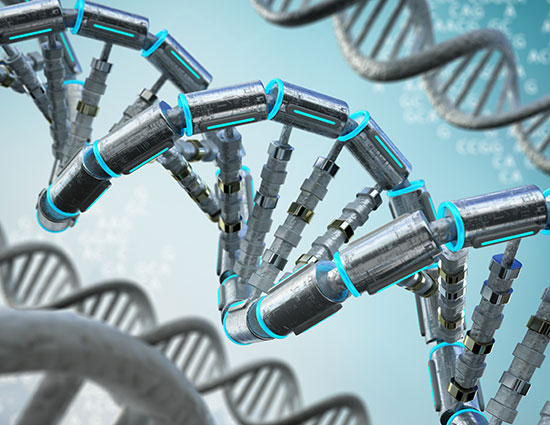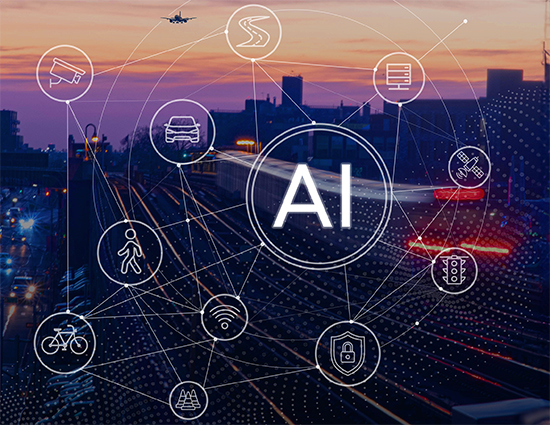Web3 is set to revolutionise business. As an iteration of the World Wide Web that prioritises the needs of users over domineering tech giants, it is being hailed as a way for us all as individuals to seize control of our data and turn the tables on the corporate world. And clearly, if Web3 fulfils its further promise of transforming the infrastructure on which all business runs, then the implications are extraordinary.
In my initial explanatory article on Web3, I went big on new revenue streams – pointing out that Web3 will propel the already burgeoning sector of digital services. In just one example for perspective, Apple during the second quarter of this year generated $19.82 billion in services revenue from the likes of iTunes, Apple Pay and its digital content. In this companion piece, I want to retain my digital services viewpoint but provide a more nuanced overview by unpacking the potential benefits of Web3 in a little extra detail. It continues my take on what every member of the C-Suite needs to know about Web3.
So, let’s start at the top. What can you actually achieve with Web3? Essentially, it provides you with the tools to implement digital services that satisfy end user needs and deliver unprecedented levels of convenience. Healthy businesses that answer their users demands will be rewarded through business models, some of which flourished in our current Web2 era. But now new, more equitable models are emerging that reward providers but also give the users a share of ownership. The era of personal data exploitation will be over. These models will also recognise the creative role played by the digital content providers.
Be Web3 capable or be irrelevant
It’s perhaps clear that new service providers will welcome the chance to disrupt the status quo. But what will be the motivation for Web2 incumbents to support Web3 ideals? For me, this will partly be a desire to be players in coming initiatives like as the metaverse (more on that later). Many are seeking new ways to stimulate growth from a stagnated user base – you need look no further than Netflix for an example of that. But essentially, most enterprises are naturally driven to achieve great customer experience and will be keen to respond to customers who are seeking a better deal while retaining sovereignty of their data. The bottom line here? Provide Web3 capability or become irrelevant.
So, if you don’t want to become irrelevant – and who does – it will pay to get up to speed with the myriad of Web3 decentralised applications (DApps) that are emerging. Some will be Web3 alternatives to applications that we already use. Think music streaming (Audius), social networking (Lens) or cloud computing (The Internet Computer). All these examples offer the sort of basic service proposition we’ve become accustomed to but add the decentralised element that allows users to retain data sovereignty.
Interestingly, some DApps will provide useful new benefits as a consequence of attributes that are unique to Web3. Examples here include supply chain transparency from pharmaceuticals to food, decentralised finance for inflation-less money and fast transactions and digital asset ownership through NFTs (non-fungible tokens) and digital wallets.
DApps will also impact the connected IoT world thanks to a huge growth in industry and business applications. Web3 protocols have an executable and autonomous nature, which means they can work easily with autonomous non-human entities – from connected machines to IT systems. I find this one of the most interesting aspects of Web3, since the data from IoT is still largely untapped. Utilising it in a trustless way, with executable contracts and better controls over data ownership, will deliver a system with more transparency and accountability, and less centralised control. I predict a new era of Intelligent Autonomous Integration for IT.
A new set of values for Web3
Web3 will bring with it a whole new set of values for everyone in digital services to adhere to – although the fundamentals of developing them will not change. We start with the intention of satisfying a user goal. We respond with a service proposition. Then we build out a service wrap and overall user experience. The difference with Web3 is that it changes expectations to reflect evolving societal values. It also provides new tools and techniques that will provide more sustainable success and a more equitable marketplace that is not dominated by a small number of providers. Let me share the new values that I recommend.
Respect user data sovereignty. Clarity over who owns what data will be paramount. Users must be allowed to control the access to data and be rewarded for sharing it. This will inspire trust. Data provided in this way is likely to be more personal – which will lead to better and more insightful experiences.
Equitable recognition for digital content creators. Digital assets have for too long been commoditised by platform providers. I’m thinking here of music and images. Thanks to tokenisation, more digital assets will be created. Web3 provides a means to allow digital creators to be rewarded for their creativity, which will encourage the growth and strengthen creativity. In turn, this will enable new value chains to flourish, where pockets of exciting content will coalesce to create something greater than their sum. The proceeds can be shared equitably between content creators.
New platform engineering techniques. There are genuinely new computing capabilities in Web3 that software engineers can use to produce imaginative and more efficient solutions to realise digital services. Some of these will be essential because the newfound respect for data privacy will drain data lakes and the like that have fuelled AI/ML and predictive analytics. An example here is the concept of ‘compute to data’ that can be implemented via the Ocean protocol and zero-knowledge proofs.
Success in the metaverse. The metaverse is going to be big, really big. We are going to explore its enormous potential in follow up articles here on the CC website. Fledgling metaverses exist now and many more will come about. Key to their utility will be the bridging of value between metaverses, transacting for digital assets and – again – respecting data privacy to make them safe and secure spaces to operate. Web3 will be crucial in providing these capabilities.
Sustainability is my ‘DApp of necessity’
I’ve never really been keen on the idea of a ‘killer app’ – for instance in connection to 3G, 4G and 5G networks. But for Web3 I think there is a perfect match with the applications need for sustainability and energy management. Let’s call it the ‘DApp of necessity’. Carbon accounting is central to managing the quantification and tracking of carbon consumption. This requires transparency, accuracy, completeness, comparability, and consistency (as stated at COP26) on those reporting it.
Blockchains also provide an answer to the double counting problem for carbon. Our planet literally cannot afford for this to be fraudulent. Also critical is the type of energy we use and how we use it. And again, Web3 can provide a platform for accounting and intelligently determining what energy to use while not exposing the privacy data associated with how we live our lives. This is an active area of research for the team here at CC.
I really want to emphasise that it is still early days in the Web3 epoch. We are at the equivalent 1995 in the evolution of the internet in terms of blockchain users. If you were there, then remember how crude the early ‘write’ capabilities of Web2 were at first – yet see what it became by 2020. Perhaps most importantly Web3 should not be seen as separate but rather as an addition to the best of Web1 and Web2 tools. In that way it’s less of the third instalment in a movie franchise and more of a three-part trilogy that develops a single story line. There’ll like be a Web4 and beyond, not least since the semantic web that Tim Berners-Lee described is still very much needed.
If you’re keen to explore the potential of Web3 for your business – or indeed have a new Web3 project that you need help with – the team here would really enjoy talking to you. Please contact me on email.





